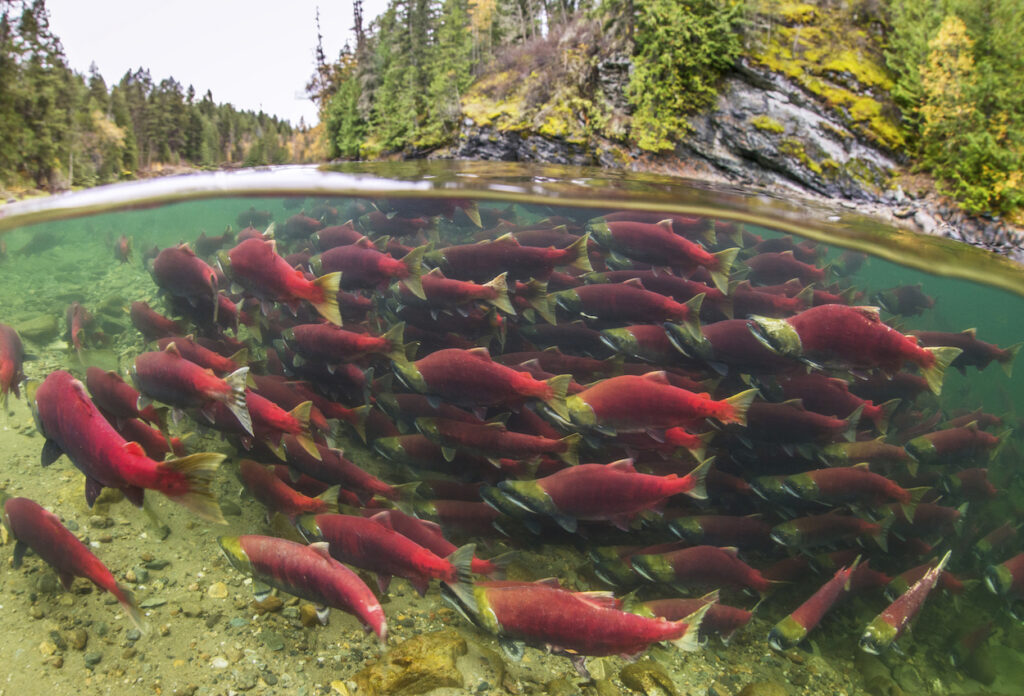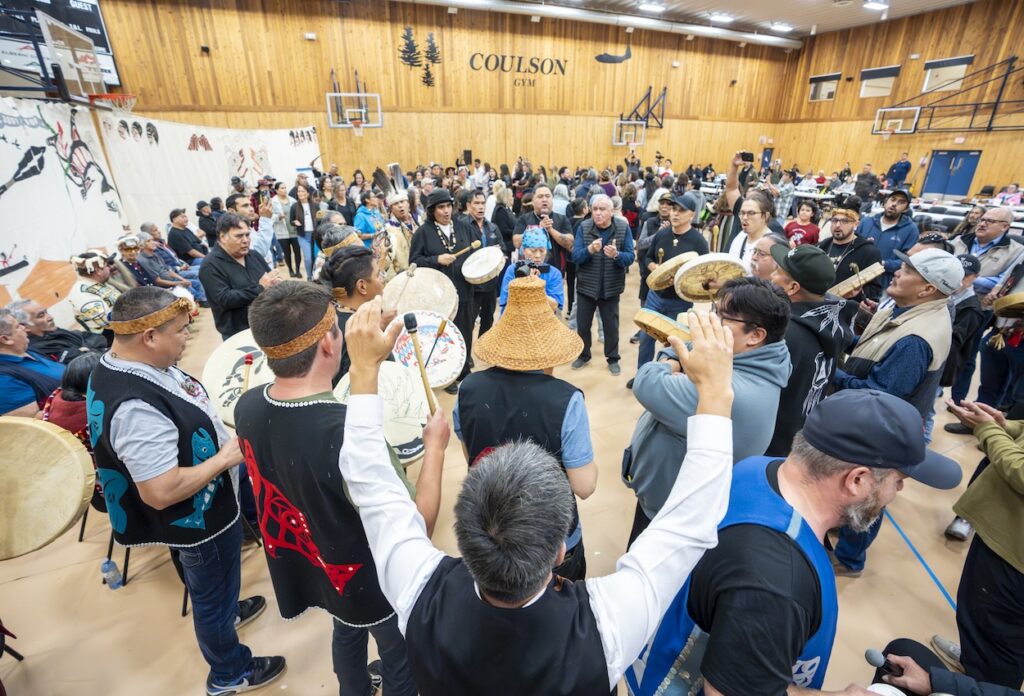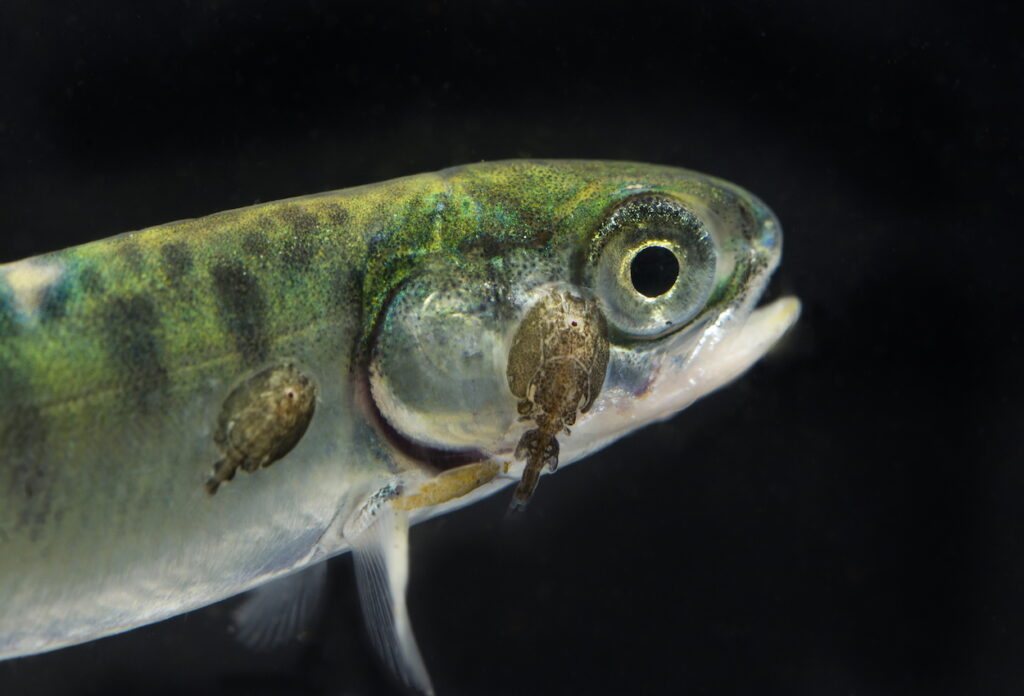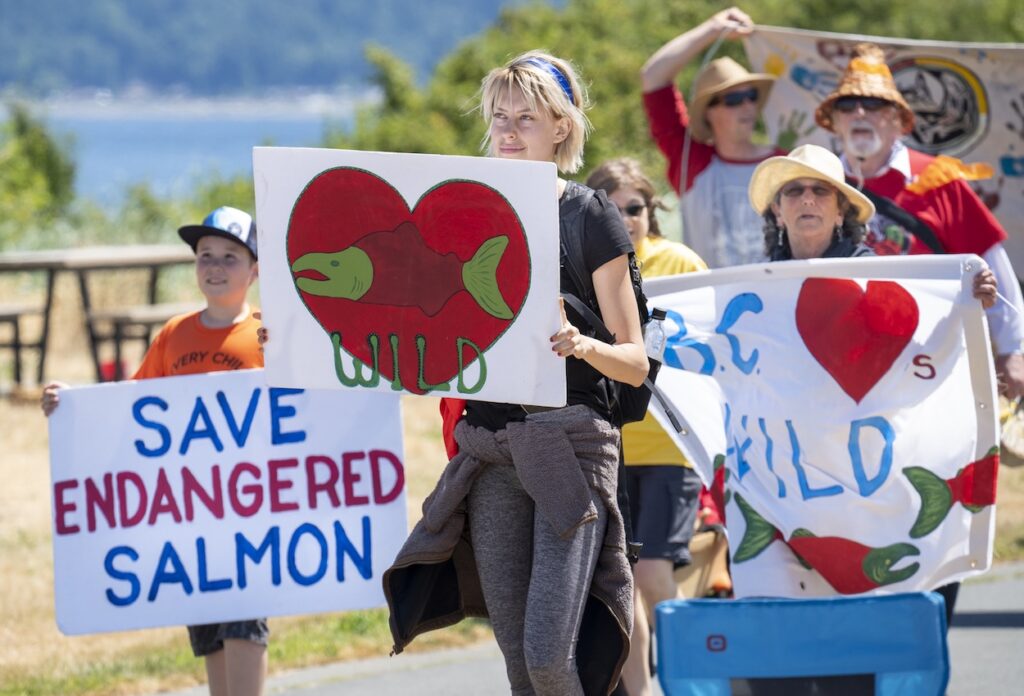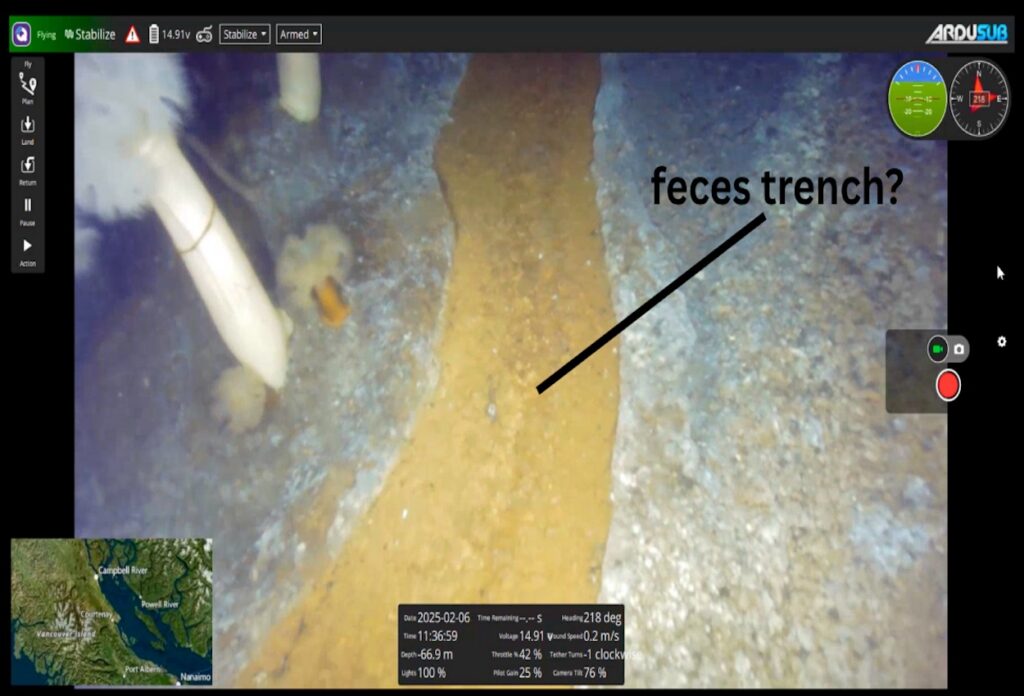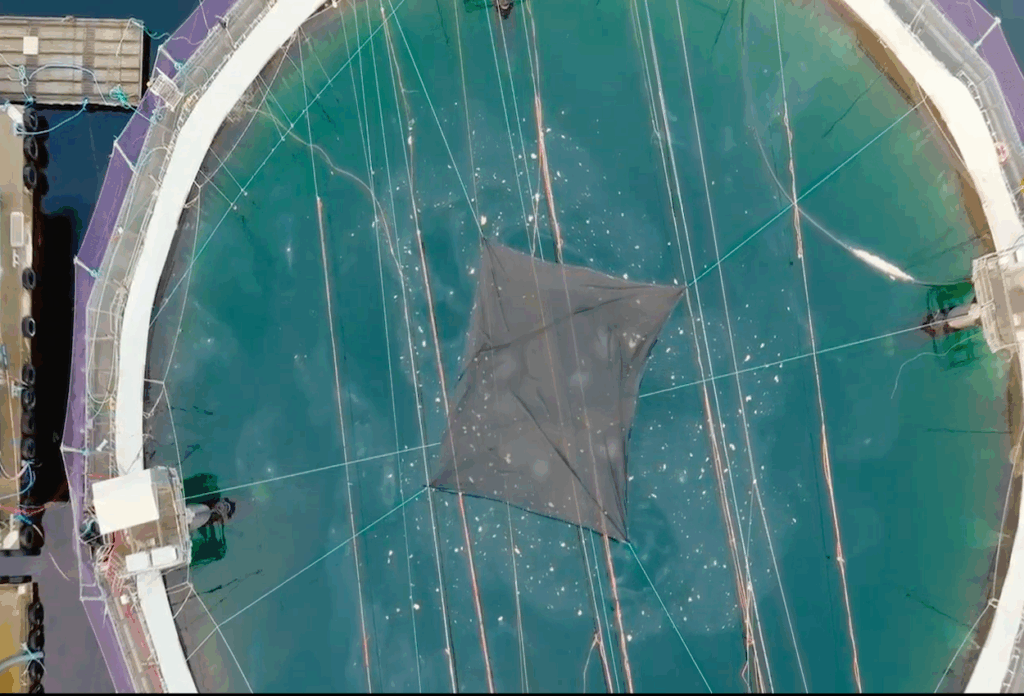Just when the TV news is covering the spectacular recovery of wild salmon wherever salmon farms have been removed from BC waters, Cermaq is applying (again) to expand their facilities in the Clayoquot Sound UNESCO Biosphere Region.
That’s right, the federal government has promised to remove salmon farms from BC waters by 2025. That transition is already well underway, led by First Nations in the Broughton Archipelago and in Sechelt Inlet. There is no social licence for in-water salmon farming in BC. Over 120 First Nations are calling for removal, there is an unprecedented alliance in the commercial fishing fleet, and 75% of British Columbians want fish farms out of the ocean. With such clear public support, you’d think the momentum would be unstoppable.
Department of Fisheries’ (DFO) Aquaculture Management Division (AMD)
Enter the Department of Fisheries’ (DFO) Aquaculture Management Division (AMD). The AMD still does not believe that salmon farming is causing harm to wild salmon. How could they? Their mandate is to promote the industry, and farmed salmon as a product.
So while DFO is mandated to protect wild fish, there is a division within the Ministry dedicated to promoting salmon aquaculture. This, despite repeated calls to split this mandate, and allow DFO to focus on protecting wild fish.
Cermaq Canada expanding in Clayoquot Sound
Now cue Cermaq Canada, a Norwegian-owned subsidiary of Mitsubishi. This company has lost their licences to farm salmon in the Discovery Islands and the Broughton Archipelago. They have no licences anywhere else in Canada. It is clear that they believe that 14 facilities in Clayoquot Sound will not generate the maximized profit they desire.
So Cermaq has been applying for, and receiving, permits to expand their Clayoquot operations. The permits approved so far have allowed them to effectively add the production equivalent of almost 2 new fish farms in the Biosphere Region, with no public input. And you thought DFO was mandated to remove, not expand salmon farming?
Cermaq recently received approval to expand 3 facilities, and they currently have 7 more expansion applications under review. If approved, this would bring the total equivalent production to over 2 new farms.
DFO could refuse permits
If DFO refused to consider the applications while the transition planning process was still underway, it could create problems.
However, two points flow from this:
- DFO does not need to grant the licences or amendments. It could refuse to grant the expansions, and cite the ongoing transition plan and globally unique location as mitigating factors.
- DFO could communicate clearly to licensees by way of a policy update that while the transition planning is underway, DFO will be maintaining the status quo – it will not grant expansions, grant new licences or cancel existing licences until that process runs its course. This would be an acceptable, prudent, approach for a regulator to take.
Granting expansions now could be used by licensees to argue that DFO was indicating to them they would be able to continue operations (DFO is setting expectations). Additionally, the investments in new or expanded infrastructure could be used as evidence in a claim in damages after the transition plan is finalized.
Granting expansions in a UNESCO Biosphere Reserve during the transition ?
On a common sense level, granting expansions in a UNESCO Biosphere Reserve during the transition planning does not make sense, even to a casual observer.
Wild salmon populations in BC continue to plummet towards extinction. DFO claims publicly that they don’t know why. But removing fish farms works—just look at what is happening on the East Coast of Vancouver Island. One early study indicates that removing the farms allowed wild salmon to return in abundance.
Dan Lewis is Executive Director of Clayoquot Action.
How I long for the day the last fish farm is removed from Clayoquot Sound, and we begin to witness the kind of resurgence in wild salmon taking place elsewhere! Until then, it’s time to keep the pressure on new Fisheries Minister Diane Lebouthillier. Please add your voice today.
